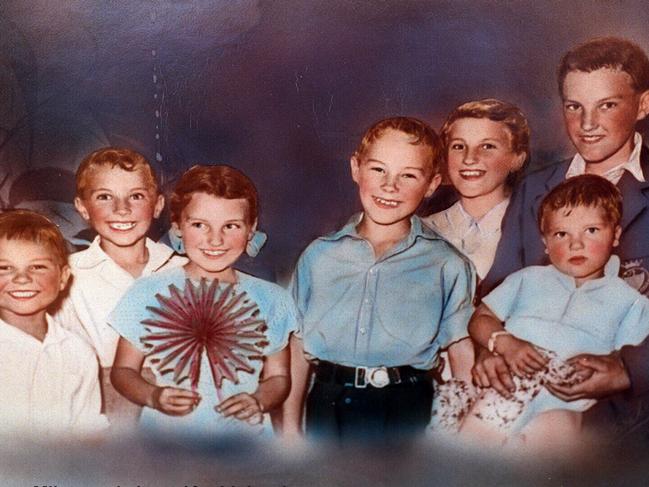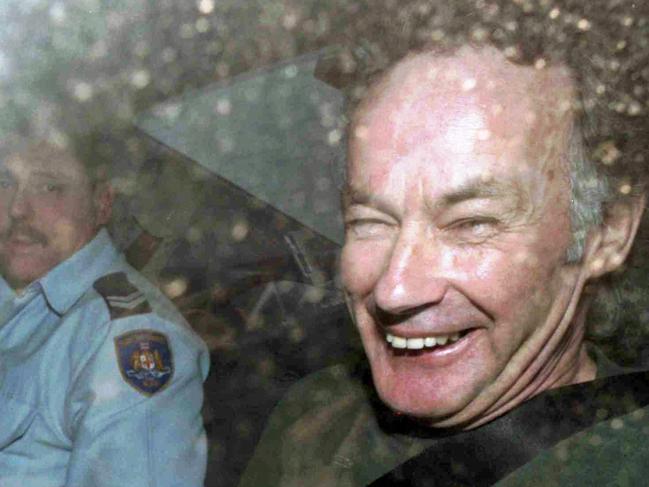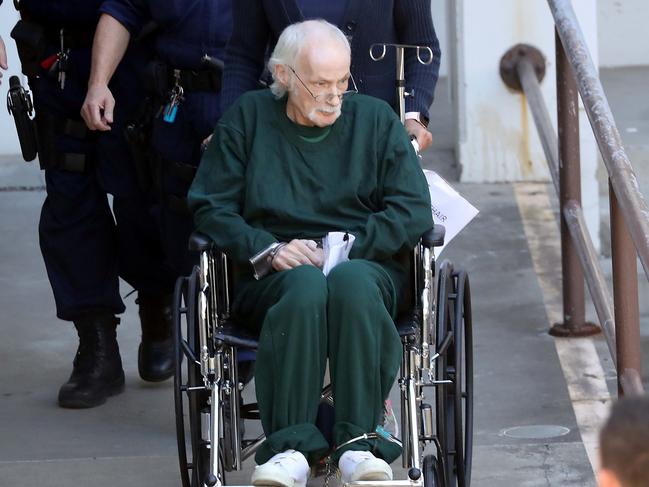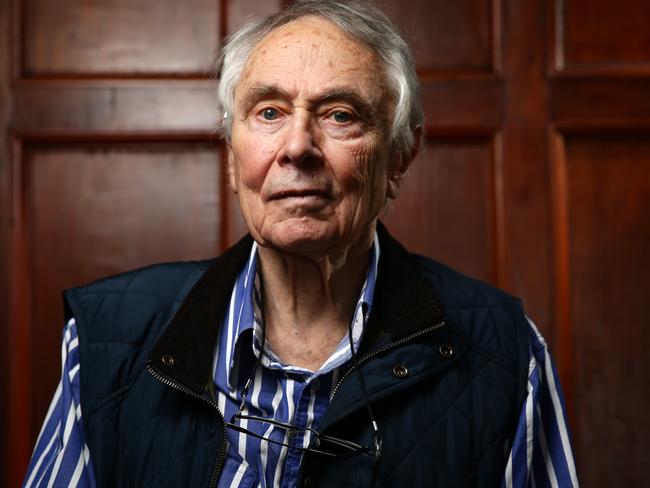Psychiatrist Rod Milton found Ivan Milat murdered for power thrill
Ivan Milat was bad — not mad, according to Australia’s leading forensic psychiatrist Rod Milton. He also found the serial killer murdered for the power it gave him over his victims. This is his chilling insight into the mind of Milat.
- Serial killer Ivan Milat dies
- Families of victims united by grief
- What judge said when sentencing Milat
Ivan Milat was bad not mad and shaped by his upbringing, a chilling profile drawn up by one of Australia's leading forensic psychiatrists told detectives as they closed in on the serial killer.
He was not mentally ill but murdered for the power it gave him over his victims.
“Domination, rather than expressing and enjoying violence for its own sake seemed to be the central issue … which is consistent with the information we have about Ivan,” Dr Rod Milton said in a psychological profile of the country’s most evil killer.
"People like Milat do not kill because they have a mental illness; they kill because they have depraved tastes.
“It is in their background. I don't think this kind of powerlessness he was compensating for was genetic; it came from life influences,” he said.
He said Milat came from a big family, which could have something to do with his feeling of powerlessness. Added to that was a background where crimes were committed regularly — other Milat brothers as well as Milat have criminal records.

Although Milat raped some of his victims, the crimes were not sexual, Dr Milton said.
“The sexual aspect was probably secondary to the satisfaction and feeling of relief in violently dominating others and putting them to death in a calculating, precise and orderly fashion,” he told police.
MORE:
How backpacker helped convict Ivan Milat
Milat’s deadly path inside Belanglo Forest
Milat family still in denial about guilt
Cops believe Milat behind unsolved murders
Dr Milton, who has profiled some of the country's most notorious murderers, was called in by homicide detectives after the bodies of the first two backpackers, Caroline Clarke and Joanne Walters, were found in September 1992. The two girls had been the last to go missing five months earlier.
Police took him to the scene of the violent murders deep in the Belanglo State Forest where Dr Milton at one stage sat to take it all in. He believes killers leave something of themselves at the scene.
"Profiling in this instance was looking at the scene and thinking what kind of personality could create such a scene," Dr Milton said.
When Milat was arrested in May 1994, the profile Dr Milton had provided to police in these early days of their investigation fitted him like a suit.


There was his fixation with control that permeated his home life. His ex-wife, Karen, described him as extremely obsessional and orderly. He could not stand dust in the house and criticised her if she did not clean properly. He stopped drinking one night after he got out of control when he drank too much.
“Control is a central issue for obsessional personalities and they are threatened by anything that might cause their emotions and behaviour to get out of control,” Dr Milton’s profile said.
“The combination of undue dependence, excessive jealousy, suspicion, obsessional qualities and narcissism suggest he would be prone to suffering depression as he got older and his appearance and strength declined.”

“Age is itself difficult to personalities of this kind. It is possible that feelings of depression and a sense of undue ageing caused him to seek relief by violently dominating others.”
Dr Milton had predicted the murderer, though essentially a hostile and aggressive person, probably would not show his aggression by getting into drunken brawls but might demonstrate the hostility by not paying registration on vehicles or traffic fines.

Milat had not held a driver's licence in his own name since 1972, although he drove trucks for a living. He also used false shooter's licences.
Dr Milton thought he might be aggressive when pushed, such as in conflict with neighbours or to an earlier spouse, and may have been in trouble with the Family Court.
In fact, shortly before the first backpackers were murdered in 1989, Milat had been involved in a bitter property dispute with his ex-wife and had boasted of shooting all the cows on the property of a man who refused to sell land to him.
Originally published as Psychiatrist Rod Milton found Ivan Milat murdered for power thrill


